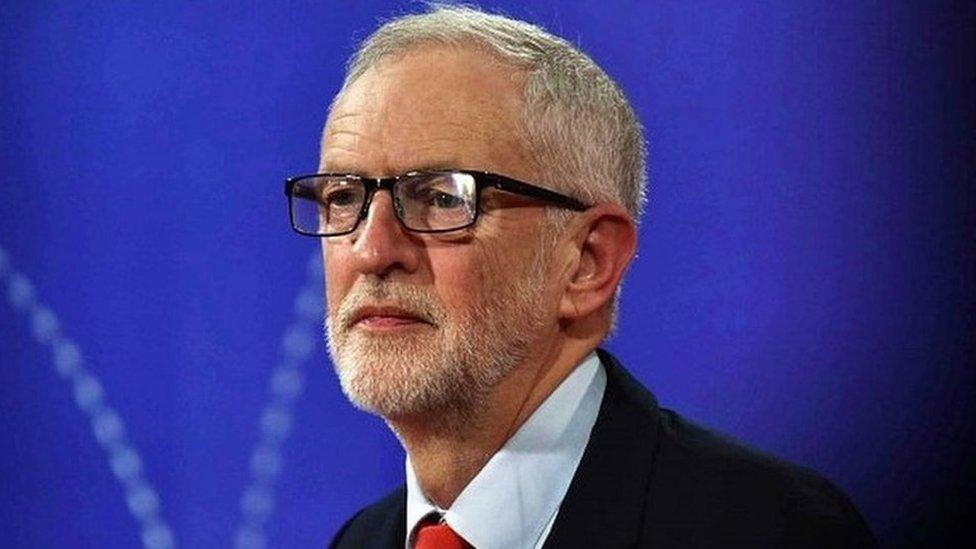Question Time debate: Audience members put election leaders under intense pressure
- Published
Watch highlights from the Question Time leaders' special
Never work with children, animals or - leaders of the four main political parties may now be reflecting - members of the BBC Question Time audience.
Audience members were selected to reflect how people in the country have voted.
Jeremy Corbyn, Nicola Sturgeon, Jo Swinson and Boris Johnson took it in turns to be grilled for half an hour each.
And while all may be practised in the political arts of deflection, it's often harder to duck and dive when asked questions directly by members of the public.
Each leader faced difficult questions. What were the toughest and what did people online make of the answers?

Jeremy Corbyn
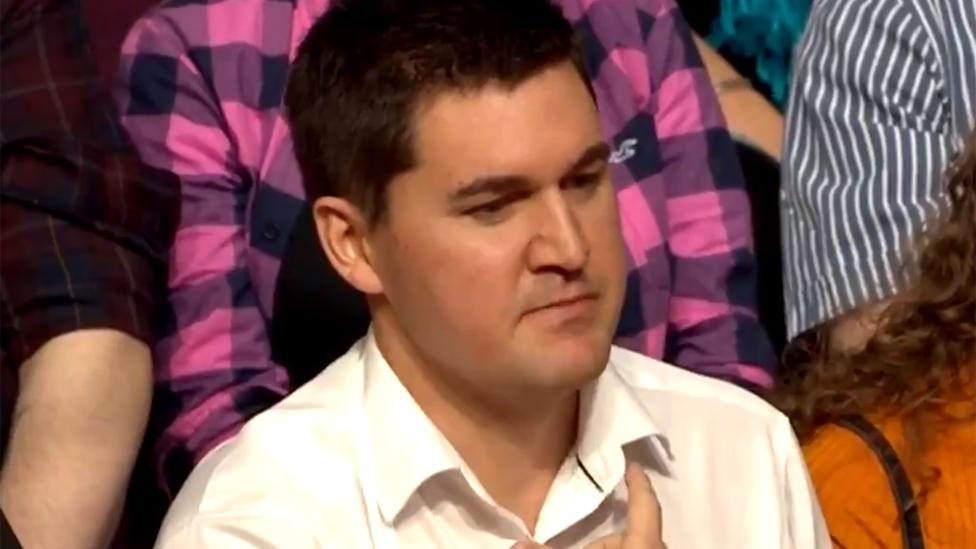
Q: I look at a video of Ruth Smeeth online where she was in a press conference with you and Ruth Smeeth - a Jewish MP - was heckled out of that press conference with you. At the end of the press conference there you are chatting to that same heckler. I don't buy this "nice old grandpa".
A: Nobody should suffer any abuse in public life or privately. Nobody should suffer abuse and many women Labour MPs, Ruth Smeeth included, have suffered the most unbelievable levels of abuse. And it was a Labour MP Jo Cox who was murdered because she stood up in public life... Bad behaviour, misogynism, racism in any form is absolutely not acceptable in any form whatsoever in my party or in society.
In 2016, Labour MP Ruth Smeeth called for Jeremy Corbyn to "resign immediately" for what she saw as his failure to intervene when "anti-Semitic slurs" were directed towards her in front of him.
Ms Smeeth walked out of a press conference held to launch a report on anti-Semitism in the Labour Party.
"It is beyond belief that someone could come to the launch of a report on anti-Semitism in the Labour Party and espouse such vile conspiracy theories about Jewish people," Ms Smeeth said in a statement at the time.
"The leader of my own party stood by and did absolutely nothing."
A Labour Party spokesman said at the time: "All allegations of anti-Semitism are taken very seriously by the Labour Party and that is why Jeremy asked Shami Chakrabarti to produce her report the conclusions of which we will consider carefully."

Nicola Sturgeon
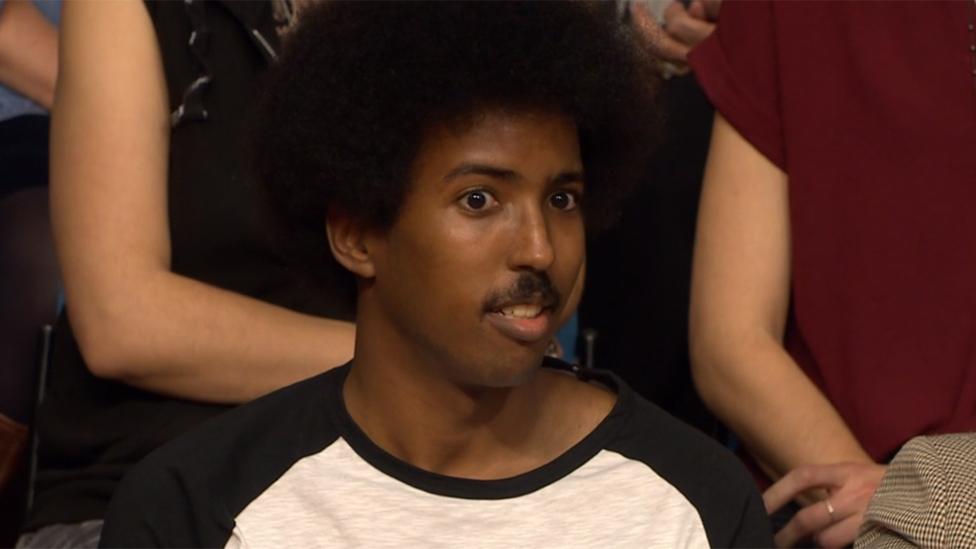
Q: Would you prioritise a Scottish independence referendum over ending austerity?
A: I want the Scottish people to have the right to choose their own future. Scotland hasn't voted for a Conservative Westminster government for 60 years. But for 36 of those 60 years we've had to put up with a Tory government. We're facing being taken out of the EU against our will... I will never support a Tory government but if Jeremy Corbyn wants the support of the SNP I don't think it should surprise people to hear me say that I would ask him to respect the right of the people of Scotland to choose their own future.
Labour leader Jeremy Corbyn has ruled out a second Scottish independence referendum for at least two years if he becomes Prime Minister.
But Ms Sturgeon wants that referendum next year and has indicated that she believes it is a price Mr Corbyn may be willing to pay.
However, she has faced some criticism - from Labour supporters such as the journalist Owen Jones, external - that her position could cost Labour votes.
Ms Sturgeon confirmed that she agreed with much of the anti-austerity positions put forward by Labour.

Jo Swinson
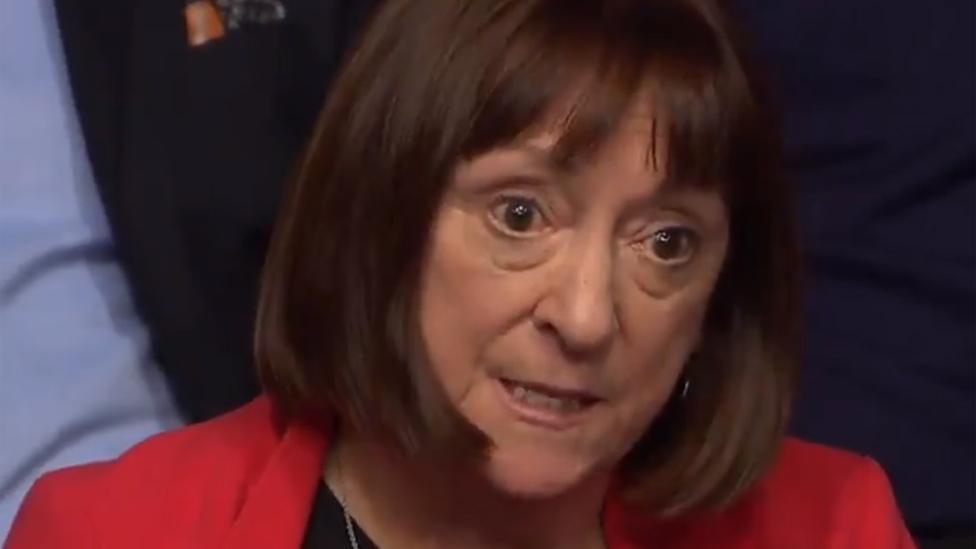
Q: Do you regret consistently voting with the Conservatives in favour of harsh and uncaring benefit cuts?
A: I absolutely recognise the issue that you're raising and the bottom line is there are far too many people in our country living in poverty and life is too hard. And we did not get everything right... We had plenty of fights with the Conservatives. We won some of those fights and we lost some of those fights.
As a minister in the coalition government formed by the Conservatives under David Cameron and the Liberal Democrats under Nick Clegg in 2010, Jo Swinson's role in implementing austerity policies has come under heavy criticism, particularly from those on the left.
Question Time host Fiona Bruce pointed out that Ms Swinson had voted in favour of the bedroom tax, frequently voted against raising benefits and frequently voted against paying higher benefits to people with illnesses or disabilities.

Boris Johnson
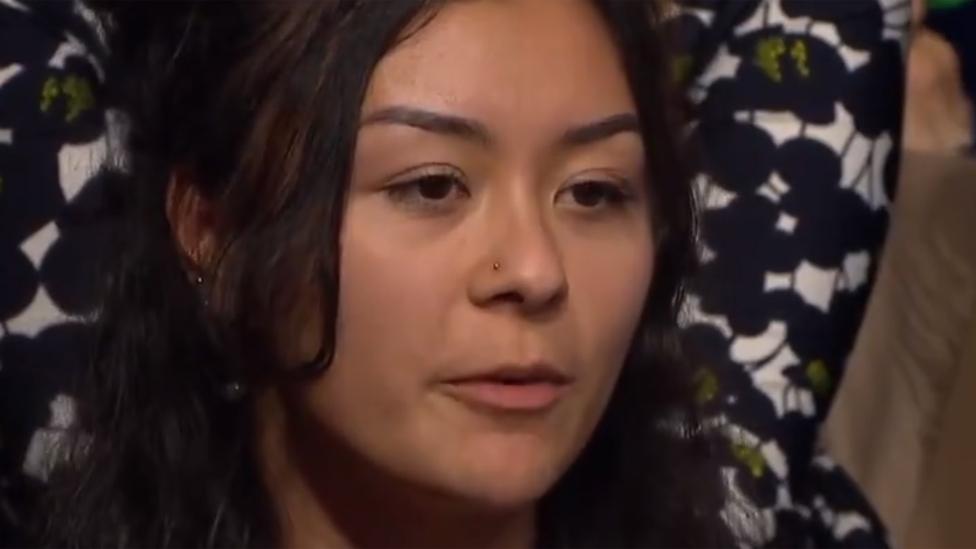
Q: Racist rhetoric in this country is rife. Will you admit that you have personally contributed to this and say the words "I'm sorry"?
A: I've written many millions of words in my life as a journalist and I've genuinely never intended to cause hurt or pain to anybody... If you go through all my articles with a fine-tooth comb and take out individual phrases there is no doubt that you can find things that can be made to seem offensive.
As host Fiona Bruce explained further, in the course of Boris Johnson's work as a journalist he has used a number of phrases which many people found offensive.
In 2018, Mr Johnson was accused of Islamophobia after a newspaper column, external in which he wrote Muslim women wearing burkas "look like letter boxes". The comments came in a column in which he strongly criticised a ban on wearing burkas in Denmark.
In 2002 he referred to "flag-waving piccaninnies" and in 1998 he used the term "tank-topped bumboys" to describe gay men in a nightclub.


The BBC Question Time Leaders Special
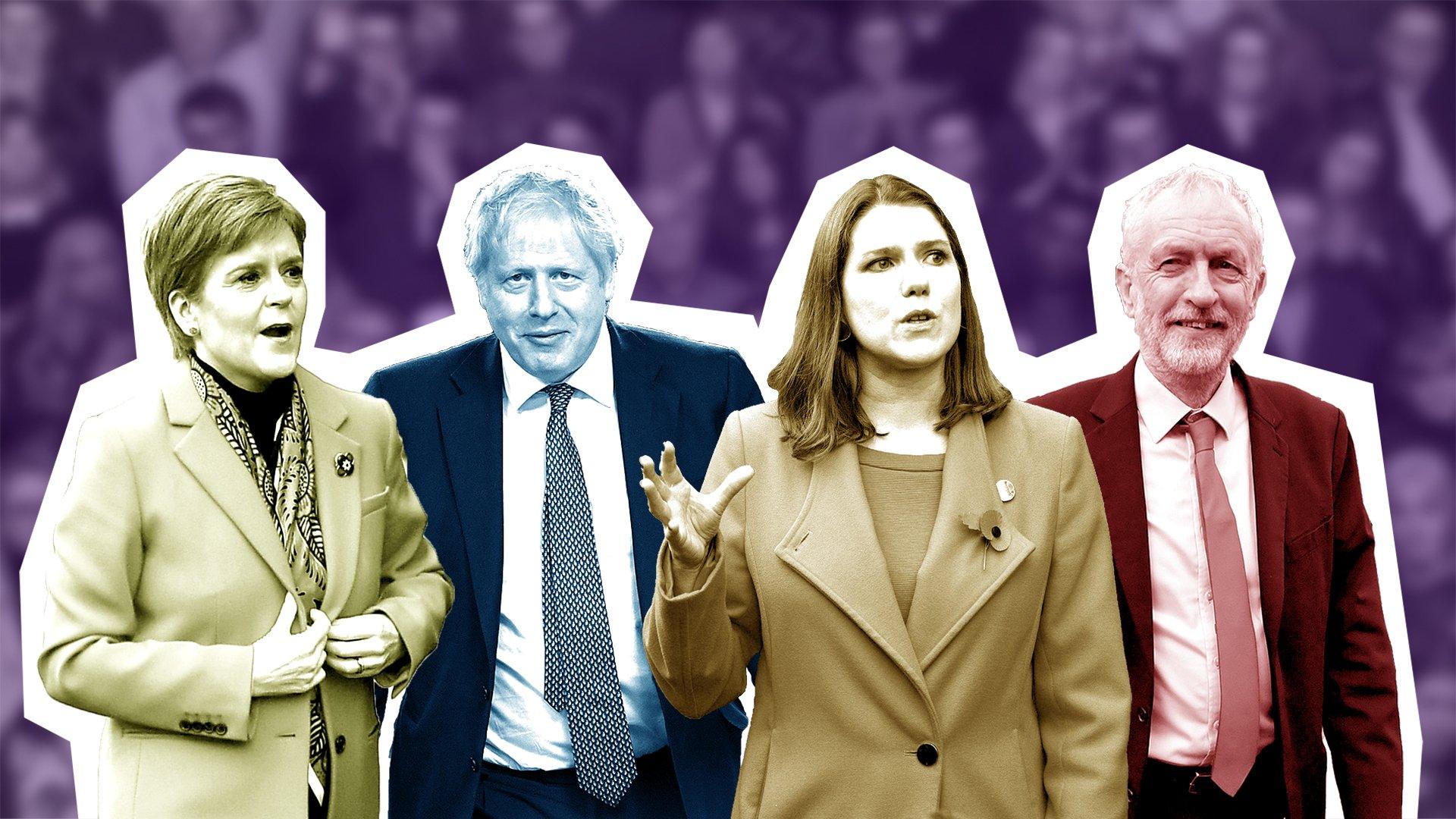
FULL PROGRAMME: Catch-up on iPlayer
REALITY CHECK: Leaders' claims scrutinised
FIVE MOMENTS: The key takeaways
ANALYSIS: Laura Kuenssberg's take

What did you think of this story? Email us, external
Follow BBC Trending on Twitter @BBCtrending, external, and find us on Facebook, external. All our stories are at bbc.com/trending.
- Published22 November 2019

- Published23 November 2019
